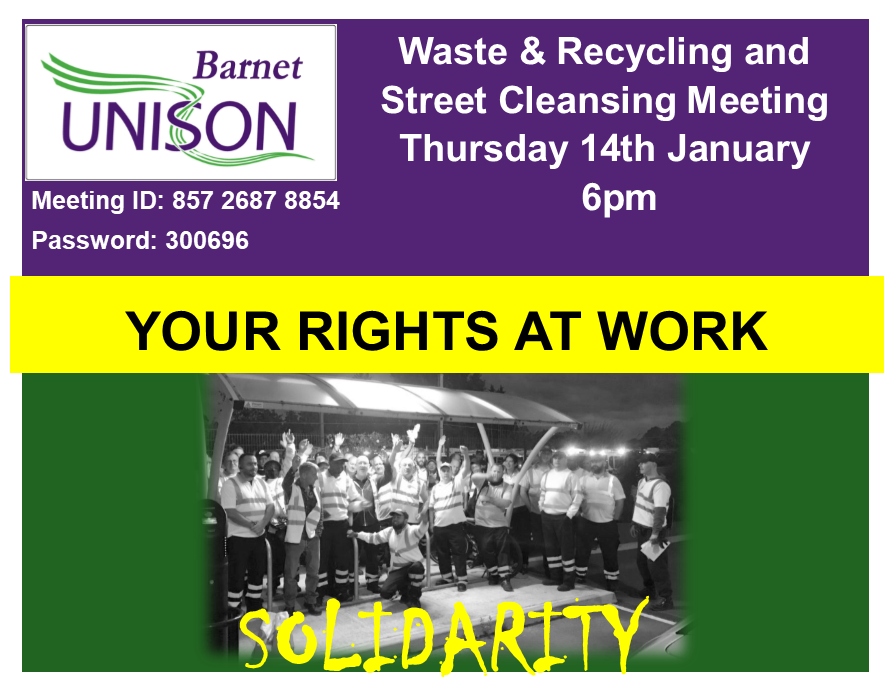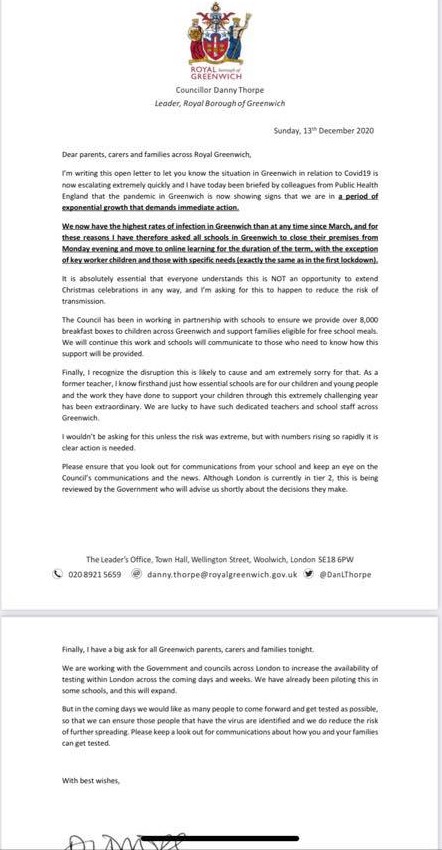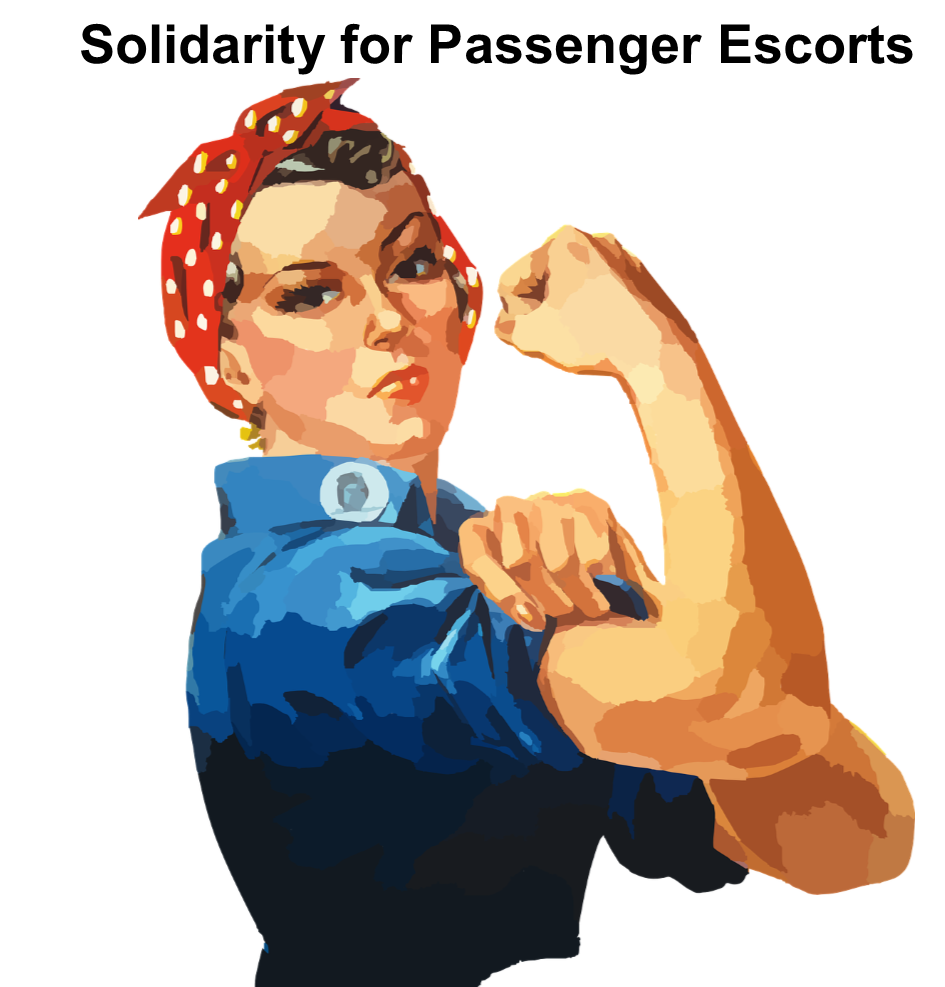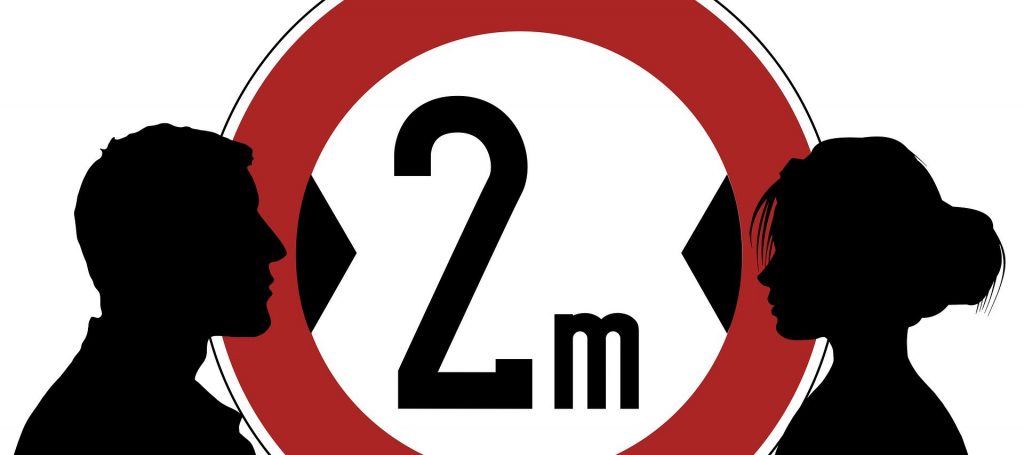Important: Waste & Recycling and Street Cleansing Zoon meeting
Thursday 14 January 2021 6 pm.
https://us02web.zoom.us/j/85726878854?pwd=VWFPZG9EcTUxM2cybUN2NjBkdGZwQT09


 Dear Barnet UNISON members
Dear Barnet UNISON members
Things are changing so quickly and the rate of infection extremely worrying as are the increasing number of deaths from COVID.
UNISON has already responded to the clear and present danger in the schools workplace which has seen many of our members send in section 44 letters to their employers.
You can read about these letters here on our website https://www.barnetunison.me.uk/wp/2021/01/03/important-update-for-barnet-unison-members-in-schools/
Barnet UNISON sincerely hopes you all had the best and most relaxing time possible over the Christmas break considering the circumstances. It has certainly not been made easy by the Government.
We have continued to be exposed to one last minute decision after another and with dubious positive effect on keeping infection rates low as they are all botched jobs. Anxieties have gone through the roof and we are all running around trying to pick up the pieces. Some pieces remain sadly permanently broken. We are offering this zoom meeting to all our members to get a sense of how each employer is handling the latest crisis and offering our advice.
Our nursery schools have shown that our front line members can bring about the change which is needed to keep communities safe.
It is worth noting how different this all could have been. Two weeks before the Christmas break the German Government could see the direction of travel of the infection rates. They decided to cut their losses and gave a full half week notice of a total lockdown to start one week before the Christmas break and which would continue for one week after the Christmas break. This was disappointing for its citizens but at least they then knew exactly what they were dealing with and could PLAN!
We want to be able to support all of our members regardless of which employer you work for.
We want to know if you are well and if you feel safe at work.

Dear Member
UNISON National has responded to widespread calls for advice for all of our members working I schools, nurseries and early years settings.
The draft email below is for members to send to their Head Teacher.
Please copy in Barnet UNISON when you send in the email contactus@barnetunison.org.uk
Model letter for UNISON members in schools, nurseries and early years in England
Dear [insert name of head/employer],
Re: Health & Safety
I am writing to you following the increase in transmission and infection rates currently recorded across England.
You are, I am sure, aware that you have legal duties to protect the health, safety and welfare of your staff and pupils. Those duties arise under the following legislation: –
The most recent advice from SAGE is that schools should not open in January[1] other than for children of key workers and vulnerable children. This is because the scientific advice is that it is not safe for schools to open. There are new variants of Covid-19 that are highly infectious and infection rates have increased significantly since schools closed.
I appreciate that measures have been in place since September to allow the school to open but according to SAGE those measures may no longer be sufficient. They state in their most recent report: –
The introduction of Tier 4 measures in England combined with the school holidays will be informative of the strength of measures required to control the new variant but analysis of this will not be possible until mid-January.
Based on the above I do not believe that it is safe for me to return to [insert name of school].
If I do attend [name of school] I believe that this will present a serious and imminent danger to my health and safety.
I am therefore writing to inform you that I am exercising my contractual right not to attend an unsafe place of work. I believe that not attending work in the current circumstances is an appropriate step for me to take for the following reasons:
In the meantime, I am of course willing to carry out any of my duties or alternative agreed duties at my grade that can be undertaken from my home, and to be in school supporting provision and the learning of key worker and vulnerable children where necessary.
Yours sincerely,
[1] https://assets.publishing.service.gov.uk/government/uploads/system/uploads/attachment_data/file/948606/s0991-sage-meeting-74-covid-19.pdf
Please note this advice applies to all primary schools, special schools, SEND and early years settings in England.
You can read the advice in full on the UNISON website here
 Dear member
Dear member
No surprisingly anxieties are running high with respect to the opening of schools etc from Monday morning.
We have a Government insistent on exposing workers to high risk of COVID to save face.
Nonetheless workers are wondering what they should do for the best.
The one thing we can offer is a safe space for colleagues to discuss their options and decide for themselves what they want to do.
I appreciate not everyone will be able to join in this zoom meeting but at least if we offer this early on in the day it gives an opportunity to contact others if we want to or need to.
Happy New Year everyone and see whoever can make our zoom meeting Sunday 3 January 2021 at 11am,
Solidarity
Barnet UNISON is inviting you to a scheduled Zoom meeting.
Topic: BEYA TU zoom meeting
Time: Jan 3, 2021 11:00 AM London
Join Zoom Meeting details below.
https://us02web.zoom.us/j/87042293661?pwd=cE5Qbng3bHlyb1hlaERaMHlLa211dz09
Meeting ID: 870 4229 3661
Passcode: 481058

Dear Members
In response to my email to the Chief Executive and the signed statement by the majority of the coach escorts I have had the following response which I want to share with you all.
“Briefing on the change of line-management of SEN Passenger Assistants
It has been agreed to transfer the line-management of SEN Passenger Assistants from Streetscene to the Transport Brokering Team in the BELS SEND and Inclusion service with effect from 1 January 2021. The transfer is intended to achieve service improvements while also delivering management efficiency savings over time.
The decision will lead to improvements in the service as a result of closer integration with other SEN teams and better communications which will be of benefit to pupils with special educational needs, their parents/carers, schools and the passenger assistants themselves. It will also enable BELS to deliver savings of £209,000 in 2021-22 rising to £229,000 in 22-23, as a result of management efficiencies.
In order to make the transfer as smooth as possible and to avoid any disruption or concerns about this leading to changes in terms and conditions for staff, it was decided that the staff should remain council employees and to commission BELS to provide line management for the service and to give them direct control of the staffing budget.
Staff will remain on LBB terms and conditions and there is no plan to change this. No redundancies are envisaged. It is not unusual to commission delivery partners to manage council staff. BELS already managed the headteacher of the Virtual School, who is employed by the council (a legal requirement) and she in turn manages the staff of the Virtual School who are employed by BELS. The Education Prevent Officer is employed by the council and managed by the BELS Safeguarding and Exclusions Manager. The head of the Transport Brokering Team in BELS reports directly to the Director, SEND and Inclusion, who is on a joint contract with the council and BELS (on account of some of the functions she exercises being non-contractable). BELS is a company wholly owned by the council.
Management of PAs by the SEN transport brokering team will provide a more streamlined conversation between the SEN teams, PAs, schools and parents about the needs of individual children and young people and how best to meet them and thus how to manage any safety and wellbeing issues. The transfer will mean greater consistency of approach/strategies used by all the adults who support children and young people with very complex needs, with PAs being part of the SEN team.
The transfer will enable closer working with schools and settings, so that information about individual children can be readily shared with PAs. This could include advice on behaviour management for individual children, as well as notifying the SEN Transport brokering team and the PAs of short or long-term changes in the child’s circumstances, including changes in health conditions.
The transfer will also lead to better planning and resilience for covering sickness and absence, which in turn will reduce the number of cancellations that have occurred during service delivery. It will mean a rapid response to passengers’ issues, as the Brokering team will now have direct contact with the PAs, without having to go through a middle tier of PTS management, which has sometimes resulted in delays in response times and complaints from frustrated parents.
PAs will be able to access direct support and advice from specialist staff in BELS concerning individual children. All the children and young people being transported and supported by PAs will be known to specialist Advisory Teachers and Educational Psychologists, who will be able to give advice on strategies to support the child. In effect, the Passenger Assistant will become a member of a ‘virtual team’ of adults working together to support the child, resulting in a holistic approach.
As the Brokering Team undertakes the risk assessment for SEN passengers, having the LBB PAs within their management control will lead to better understanding of requirements for PAs, ensuring the correct support and outcomes are achieved.
IH/HP 10.12.20. “
On 16 December I emailed BELS to ask for a copy of the plans in place to ensure that all staff have adequate PPE for all coach escorts when schools reopen in January 2020.
I want to send my best wishes to all of our members working for Passenger Transport and can assure you all that next year Barnet UNISON will be looking out for our members.

Hi Ian
I am writing to you in your statutory role to ask if you are aware of the Greenwich Council decision which has appeared online this afternoon?
I attach a copy of the letter sent out to all Greenwich schools by the Leader of Greenwich Council.
Please note he states:
“I have asked all Schools in Greenwich to close their premises from Monday evening and move to online learning for the duration of term, with the exception of key worker children and those with specific needs (exactly the same as the first lockdown).”
Throughout the pandemic we have been advised that Barnet Council are working in line with London Councils. I am assuming this decision has been subject to some discussions with London Councils?
Given the increased likelihood of London going into Tier 3 and perhaps the 23 – 28 December initiative being limited for people living in London is Barnet Council going to try to mitigate the spread by following their lead?
I will be writing to over a thousand plus UNISON members working in Barnet Schools most of which are frightened at the increasing likelihood that there will be more infections in the last week of school and the negative impact it will have on their families.
Stay safe.
Best wishes
John Burgess
Branch Secretary.
Barnet UNISON
0208 359 2088
Barnet UNISON “Watch it & Share it”
UNISON Financial Assistance for members https://cutt.ly/IhYlXD0
Need Support For Your Mental Health At Work
STAY AT HOME PROTECT THE NHS SAVE LIVES
Not a member? Join Today at http://unison.org.uk/recruitment/ or by contacting the Branch Office 0208 359
2088

On Monday 30th November, 2020 at the Children, Education & Safeguarding Committee agreed to a savings proposal that moved the line management of Passenger Escorts from Barnet Council to the latest outsourcing organisation Barnet Education Learning and Skills (BELS).
This decision had not been discussed with the workforce. This service consists of a driver and a passenger escort. This proposal seeks to move from single line management of both staff to two line managers with the added complexity that the line manager for passenger escorts is not a Barnet Council employee.
Both UNISON and GMB objected to this decision and as you will see so did the workforce.
Over 90% of coach escorts signed the following statement
“Dear Mr Hooton
I have been told that as from 1 January 2021 I will no longer be managed by an employee of Barnet Council.
I was never asked for my opinion about this proposal.
I have worked through COVID and I continue to do my best for the children under very stressful circumstances because I love my job.
I don’t do this for the money.
I want to put on record that I want to be managed by a Barnet Council employee.
Signed”
Hi John
Mary and I are writing to you on behalf of all coach escorts about the decision to move their line management from Street Scene to Barnet Education and Learning Service (BELS).
Last week we both attended five meetings with our members (coach escorts) working for Passenger Transport and the BELS over the decision to transfer the line management of the coach escorts from Street Scene to BELS.
Unfortunately what may have seemed like a decision that would have no impact on the staff we have to report that this is not the case. If we had been consulted about this proposal we would have advised you of the likely impact such news would have on this workforce.
This is a low paid female workforce.
They are a frontline workforce that have been working out in the COVID workplace with all the stress that brings regardless of what a Risk Assessment may state about being COVID secure.
It is to their credit that they like many low paid staff get on with the job. If you and members of your senior management team have ever spend time with this workforce, which we have both done over the years, you will have been left in no doubt that their commitment lies with the children they accompany on behalf of Barnet Council.
Both Mary and I have been involved with this service over many years and in that time staff have seen changes to line management of the service.
UNISON and GMB have been regularly meeting with the operational management of this service for over five years and in that time we have seen things improve for drivers and coach escorts.
Almost two weeks ago the trade unions were contacted to attend a meeting where we were told that the line management was being handed to BELS.
The reaction from both trade unions and later the membership, was why?
Why is a two person team being split and handed over to another employer?
It is really important to understand that many of the staff have been around for a long time and have witnessed groups of Council workers first being split from their original service only to find out later they are being outsourced.
Barnet Council like it or not has a reputation for outsourcing services to a variety of different employers. These different employers offer new staff inferior Terms and Conditions with no access to LGPS.
We have a recent example of BELS (formerly Mott MacDonald), where the workforce were unaware of what was going on behind the scenes with Mott MacDonald and Barnet Council were suddenly plunged into uncertainty and stress at the announcement that Mott MacDonald wanted to terminate the contract.
As you know the majority of staff wanted to return to Barnet Council. Many of our members across our respective trade unions commented how unfair it was that workers were carrying out the same role but one had access to the LGPS and the others did not. This inequality was exacerbated was made worse by the fact that senior managers with joint appointment contacts, which provides entitlement to LGPS, were promoting the BELS model and against the in-house model.
It is within this backdrop of this recent decision and the news of this transfer of line management that members across PTS are speculating this is the first stage of an outsourcing agenda.
In the five meetings which took place last week staff they have been told the reason for the decision to change the line management is to enable the service to become more streamlined and to improve communication. Both Mary and I were unaware there were any issues. It would have been helpful to have been informed of these concerns.
In terms of having a more streamlined it would make more sense to bring the SEND service back in-house to Family Services, in that way we would have one organisation responsible for delivering this service just as it is in many local authorities across the UK.
This is why I have coach escorts asking if this is the first step before a TUPE transfer to BELS and now our drivers are also feeling threatened that they could be TUPEd to an external contractor.
It is important to add that in the meetings when it was raised senior management for LBB and BELS have all stated this decision is not about outsourcing.
However due our Councils recent history of outsourcing many fear this decision is an indication there is going to be a return to outsourcing in response to Government’s announcements about local government pay freezes.
Over the last ten years low paid staff have been made to pay for Austerity and it should be no surprise to you and that of your senior management team that they fear that it is coming back for them.
Our members have repeatedly asked us what they can do. They don’t want to be transferred.
UNISON and GMB agreed that we would write to you and the senior management team responsible for this decision.
Please find attached a statement signed by almost every coach escort. The engagement of this workforce on this matter should provide an indication of the strength of feeling about this transfer and their wish to line managed by a Council employee.
Stay safe.
Best wishes
John Burgess
Branch Secretary.
Barnet UNISON

Further precautions advised on top of the tougher national measures being introduced, as cases continue to rise.
Those with the following conditions fall into the clinically extremely vulnerable group:
Latest update added to clinical extremely vulnerable:
“We now have evidence to suggest that those with chronic kidney disease (stage 5) and those undergoing dialysis, as well as adults with Down’s Syndrome, are at higher risk from COVID-19 than the general population and therefore the Chief Medical Officer has advised they follow the new guidance for the clinically extremely vulnerable. We have asked the NHS to begin the process of identifying and contacting all those affected, providing them with the latest advice”.
https://www.gov.uk/government/news/clinically-extremely-vulnerable-receive-updated-guidance-in-line-with-new-national-restrictions
 For the purposes of this proposal frontline means workers who cannot work from home.
For the purposes of this proposal frontline means workers who cannot work from home.
* Barnet Council responses in red.
1. All staff who are deemed clinically vulnerable or extremely clinically vulnerable to stay at home for lockdown on full pay.
We need to draw a distinction between those staff who are Clinically Extremely Vulnerable (CEV) and those who have other underlying health conditions. Those who are CEV will have received a letter from the NHS, and should not attend work. Where possible, they should work from home, and this could include performing other duties that are not normally part of their job role, but which they are trained and competent to do. Where this isn’t possible, they should remain home on full pay regardless. Those who have other health conditions could be required to attend the workplace if they cannot work from home. If any staff members have concerns about this they should speak to their manager and, if necessary, they will carry out an individual risk assessment to ensure that the staff member’s health is not unnecessarily compromised.
2. All frontline staff to receive a monthly COVID payment for the duration of the Pandemic in recognition of the important role they playing in the provision of frontline services and the simple fact frontline workers can’t work from home and have to bear the costs of travel and navigate the risks of travel on public transport.
Whilst we continue to be hugely appreciative of the dedication and commitment of those staff who do have to continue attending the workplace during the pandemic, we have no plans to provide an additional payment. This is consistent with the majority of other Councils across London.
3. All frontline workers to have weekly COVID tests.
Testing capacity is limited across the country and prioritised for those where evidence suggests it is most effective, such as anyone with COVID-19 symptoms and some frontline staff (e.g. health and care workers). For other frontline staff, risk mitigation actions are in place to prevent potential spread of the infection. As you are aware, regular testing asymptomatic people is of a limited value, unless they work in very high risk areas (such as care settings and hospitals), as results are not always conclusive and no test is 100% accurate. We are however closely monitoring findings of early pilots of mass testing for asymptomatic people and are working towards bringing some learning to Barnet and, some key worker groups, can be considered for that initiative, when it becomes available.
4. All frontline workers to receive full pay if they have to isolate or are unable to work due to COVID.
As you are aware, this has been our policy since the start of the pandemic and we have no plans to change it
5. All frontline workers to have unlimited access to counselling services during this pandemic in recognition of the mental stress working with COVID brings to this workforce.
All staff are able to access the council’s Employee Assistant Programme (EAP), which provides them with at least 6 counselling sessions. There are also other support options available including Able Futures and our Mental Health First Aiders. As currently, if anyone requires more specialised counselling services, they should speak to their line manager or the SHAW team in the first instance
6. If staff have to work from home due to fact their children are sent home from their school due to COVID then they should remain on full pay.
As you know, this has been our policy since the start of the pandemic, and we have no plans to change it. We would however encourage staff to work from home in those instances, if possible.
7. All COVID related absences whilst recorded should not be used for sickness absence recording.
Once again, we agreed at the start of the pandemic that COVID related sickness absences would not be used in relation to any absence management procedures. We have no plans to change this. I would just add, however, that we will need to keep this under review in relation to “long COVID”. As I’m sure you are aware, medical understanding of this condition is still developing and, whilst we will continue to be supportive of all staff suffering illness, clearly we cannot put ourselves in the position, as an employer, of having people off work indefinitely without having any recourse to resolve matters
8. Any staff having to make emergency visits abroad to visit a dying relative or attend a funeral should receive full pay during the quarantine period.
We will consider such situations on a case by case basis, whilst maintaining the general approach of being as compassionate and supportive as possible.
COVID Plus for home workers.
1. All staff who are deemed clinically vulnerable or extremely clinically vulnerable to stay at home for lockdown on full pay.
See my answer to question 1 above. However, as we are now talking about home-workers, there should be no issues with staff members having to attend the workplace
2. All workers to have unlimited access to counselling services during this pandemic in recognition of the mental stress working with COVID brings to this workforce.
See my answer to question 5 above
3. If staff have to work from home due to fact their children are sent home from their school due to COVID then they should remain on full pay and it should be recognised that the worker has a reduced capacity to carry out their work duties.
This is the policy we have adopted throughout the pandemic and are not planning to change it now. In such cases it is very important that staff discuss their situation with their line manager and that this continues throughout the period during which children are at home
4. All COVID related absences whilst recorded should not be used for sickness absence recording.
See my answer to question 7 above
5. Any staff having to make emergency visits abroad to visit a dying relative or attend a funeral should receive full pay during the quarantine period.
See my answer to question 8 above
6. To recognise the damaging effect working from home has on both physical activity levels and mental health. Also to recognise that the normal practice of leaving home to travel to and from work also of travelling between venues for meetings are now lost to the home worker leading to a more compressed working routine with little opportunity to leave the home. Therefore give a one hour paid daily break to home working staff in addition to their lunch break to enable them to have down time from their computer screens and so that they can physically leave their home for a walk or partake in some form of exercise.
We do recognise that home working can create risks to people’s physical and mental wellbeing. Equally, it can provide the opportunity for people to achieve better balance in their lives and to work more flexibly. We encourage all staff to look after their wellbeing whilst working from home, and will continue to provide both encouragement and resources for them to do this. Staff are encouraged to take regular short breaks during the day, especially when using screens continuously. It does need to be recognised that, without the journey into work, most staff do have more time available to them, and we would encourage them to use this time productively to look after their health and wellbeing, for example by going out for a walk before work at the time when they would otherwise have been travelling into the office. We do not believe that it would be appropriate to give an additional hours’ paid time off each day.
7. Protocol for structuring virtual meetings to enable time away from the screen e.g. starting meetings at quarter past the hour implying that there should be a 15min break before the meeting starts.
Some parts of the council have introduced similar protocols to this, but I agree that it would sensible to provide further guidance to everyone on the subject, and will ask the Communications Team to issue some advice accordingly.
8. Supervision to incorporate questions relating to mental health wellbeing and physical health as well as checking on the home set up (it should not be assumed home set up is constantly the same).
This is part of a manager’s normal responsibility towards their staff, and if anyone feels that they are not being given adequate opportunities to discuss their health and wellbeing, they should ensure that they raise this – initially with their manager or, if necessary, with HR
9. For a designated person to randomly contact 10 workers per week to find out from them their experience with respect to supervision, welfare checks etc.
I agree that it is important for us to receive regular feedback from staff with regard to their welfare and working arrangements. For this reason, we are carrying our regular “pulse” surveys. The latest of these has just gone live, and subsequent surveys will be carried out every 6-8 weeks.
10. Staff with children at home should be given a designated amount of time to dedicate to their child’s learning and leisure.
I’m not entirely clear exactly what is being asked here. See my answer to question 3 above with regard to those children who are required to isolate. Clearly it is for all parents to find an appropriate balance between their paid employment and time with their children, which is the case regardless of whether people are working from home or not. In most cases, home working will allow staff to achieve a better balance between competing priorities, and provide more time at home due to the removal of travelling time.
11. Key workers working from home who have a clinically or extremely clinically vulnerable child should be allowed to continue working from home if schools are closed but only open to key worker’s children.
Schools are fully open and so should not just be open to key workers’ children. If a child is unable to attend school for medical reasons (i.e. they have been confirmed to be Clinically Extremely Vulnerable by a GP or hospital doctor), then we would allow the parent to work from home. But this would only apply to the parent of a CEV child, not those with other health conditions (e.g. those clinically vulnerable) that do not prevent the child’s attendance at school.

Dear Barnet UNISON members
The following Joint Trade Union proposals were sent to Barnet Council on Wednesday 4 November 2020.
We will update members as soon as we have a response.
UNISON National issue this statement on schools which you can view here
COVID Plus. Front line workers
For the purposes of this proposal frontline means workers who cannot work from home.
COVID Plus for home workers.
Stay safe
Best wishes
John Burgess
Branch Secretary
Barnet UNISON.